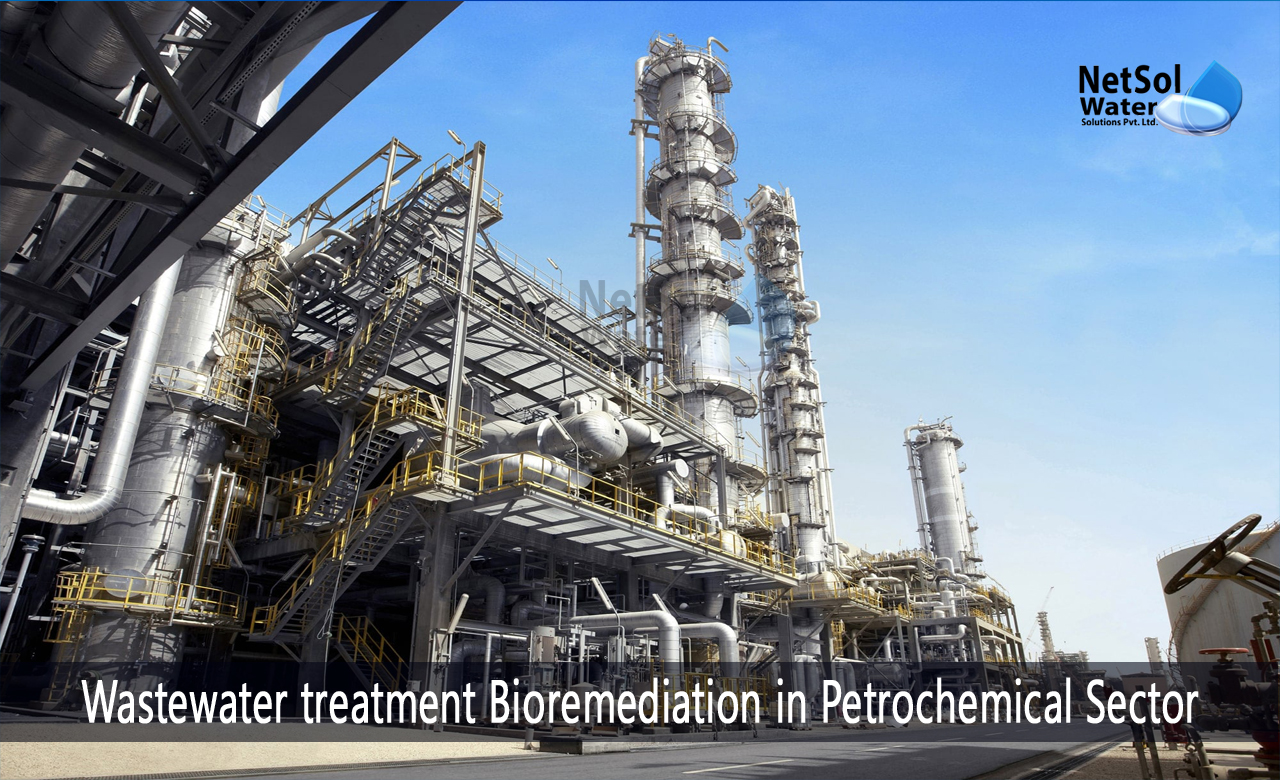One of the sectors with the quickest growth, the petrochemical industry has a considerable impact on the expansion of national and global economies. However, certain refinery processes including desalination, which uses water, and equipment cooling produce effluents.
Additionally, a significant amount of hazardous wastewater in petrochemical sector made up of organic and inorganic substances is left behind, and requires treatment.
Petroleum pollution
Petroleum, which is a mixture of hydrocarbons and organic chemicals, has contaminated land and water as a result of unintentional spills, unauthorized waste disposal, and improper wastewater treatment.
Additionally, one of the biggest hazards to the environment is posed by inefficient treatment techniques, paired with the strain on wastewater treatment facilities caused by an excess of wastewater. It may be harmful to aquatic life, including plants, animals, etc.
Therefore, petroleum pollution is a global environmental problem that requires quick attention and creative solutions. One of the finest techniques for treating pollutants and toxins in soil and water, without harming other environmental elements, is bioremediation.
What is Bioremediation?
Utilizing living biological microorganisms, the bioremediation process breaks down contaminants, poisons, and pollutants in hazardous waste, and transforms them into innocuous elements like carbon dioxide and water. In the presence and absence of oxygen, respectively, the breakdown process is carried out by both aerobic and anaerobic microorganisms.
Benefits of bioremediation
Bioremediation, which aids in the breakdown of organic contaminants, is integrated into the biological treatment stage of wastewater treatment facilities. It is essential for the bioreactors' wastewater treatment process as well. The use of bioremediation for soil remediation, land clean-up, and air filtration is highly effective.
Bioremediation is frequently favoured over conventional chemical treatment procedures, because it uses natural living organisms and is less harmful to the environment. Therefore, bioremediation is crucial for accomplishing the aims of the bio-economy, as well as efforts like green development and sustainability. It also has a higher economic worth, uses less technology procedures, and enjoys greater public acceptance.
Characteristics of petrochemical wastewater
Numerous items are produced worldwide in petrochemical industries. Refineries release a range of pollutants depending on their diverse procedures and practises.
Oil components like wax, dissolved minerals like heavy metals, dissolved organic compounds like phenol, acids, and inorganic compounds have all been found, to be present in significant amounts in petroleum. There are also dissolved carbon dioxide gases and hydrogen sulphide present.
Each of these substances taints soil and water resources
There are four categories of petroleum hydrocarbon pollutants found in effluent: aromatics, saturates, asphaltenes (ketones, esters, phenols, fatty acids, and porphyrins), and resins. These can only be broken down to a certain extent depending on the presence of microbes,and how vulnerable they are to microbial attack.
What is Wastewater treatment Bioremediation in Petrochemical Sector?
Since the beginning of time, environmental microbes have been consuming oil matter by breaking down lipids, fatty acids, and glycerol into simpler chemicals. Some bacterial taxa, which have been identified and examined from petroleum-contaminated soil, and have shown promise as hydrocarbon-degrading microorganisms, include Aeromicrobium, Gordonia, Brevibacterium, and Mycoabacteirum.
But naturally occurring microbes cannot handle the massive rate of petroleum pollution. Thus, utilizing synthetic biology, specialised microbial communities have been developed as a result of years of studies on bioremediation.
Conclusion
A diverse population of microorganisms can be employed nowadays in petrochemical industries, to boost performance through coordinated influence, and have an effective and efficient wastewater treatment procedure.
Recently, it has been discovered that the mixed microbial consortium's metabolic capability, is effective for detoxifying wastewater. In order to release safe effluent into the environment, bioremediation is the ideal method for wastewater treatment in petrochemical businesses.
Get your wastewater treatment plants designed, manufactured and installed from Netsol Water!
One of the top businesses offering successful and effective solutions, for wastewater treatment issues in petrochemical industries is Netsol Water. Our products and wastewater treatment equipment’s can speed up every procedure, and improve the efficiency of the treatment facilities.
Our advanced treatment products aid in the treatment of wastewater, reducing organics, inorganics, FOGs, TDS levels, heavy metals and other microscopic organisms, with the elimination of unpleasant odours.
Netsol Water is Greater Noida-based leading water & wastewater treatment plant manufacturer. We are industry's most demanding company based on client review and work quality. We are known as best commercial RO plant manufacturers, industrial RO plant manufacturer, sewage treatment plant manufacturer, Water Softener Plant Manufacturers and effluent treatment plant manufacturers. Apart from this 24x7 customer support is our USP. Call on +91-9650608473, or write us at enquiry@netsolwater.com for any support, inquiry or product-purchase related query.



